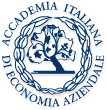34th EGOS Colloquium "Surprise in and around Organizations: Journeys to the Unexpected"
The 2018 EGOS (European Group for Organizational Studies) Colloquium will be hosted in Tallinn, at the Estonian Business School (EBS), on July 5-7, 2018. The theme of the Colloquium is "Surprise in and around Organizations: Journeys to the Unexpected".
Tallin, the capital of Estonia is a highly liberal market economy and home of innovators. Estonia, however, is also a country that has itself experienced, over the last 30 years, manifold surprises. From being part of the Soviet Union to joining the European Union, it has been on a journey of the unexpected. Its organizations (be they public, business or non-profit) have had to cope with major transformations and transitions.
The capacity to surprise, the experience of being surprised, and the ability to cope adequately with, and respond to, surprises are important aspects of organizational life, especially as organizations face the unexpected in the environments and societies they are embedded in or are exposed to. Surprise can, of course, mean many different things, ranging from new discoveries and openings, to shocks and ruptures. It can be good or bad, triggering amazement and astonishment, as well as confusion and consternation. Overall, when something surprising happens in and around organizations, it opens up a journey to the unexpected, bringing about challenges but also opportunities for learning. Unpleasant surprises, however, can also lead to learning blocks and emotional traumas, restraining creativity and adventure, and making us opt for the tried and tested.
Just as individuals and organizations create and/or react to surprises in different ways, so do organizational scholars approach the phenomenon of surprise from many different perspectives. Surprise can be viewed as endogenous or exogenous, positive or negative, man-made or nature-driven, etc. Some organization theories suggest that people and organizations are limited in the ways in which they can address and handle surprise, while others treat surprise as an essential part of organizational life, bringing about unlimited possibilities for renewal, innovation and knowledge.
Surprise, in its popular conception, has a largely unplanned and non-deterministic character. Yet, surprises can be, and at times are, meticulously planned and staged (from surprise celebrations for colleagues and surprising experiences for customers, to surprise attacks to adversaries), thus perceiving surprise to be manageable and placing it in the domain of organizational strategy. In that, organizational members may not be able to resort to routines or customary ways of control, and may have to come up with new ways of collaboration and of dealing with the resulting ruptures and disorder. It is this ambivalent and complex nature of surprise that makes it worthwhile to explore further.
For further information, please visit the website of the event.
Febbraio 2018



